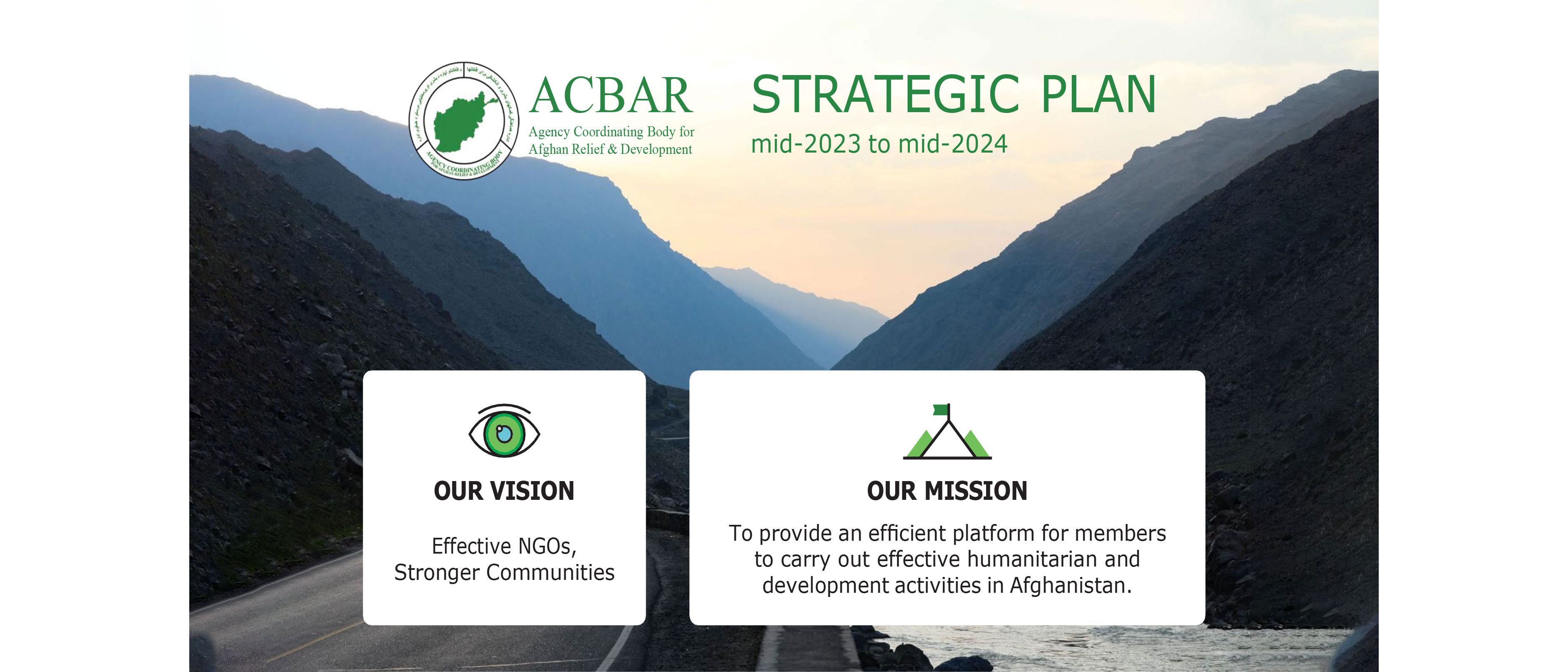
Strategic Plan
Strategic plan 2023
Vision
Effective NGOs, Stronger Communities
Mission
To provide an efficient platform for members to carry out effective humanitarian and development activities in Afghanistan.
Our Strategic Theme For This Period
Improve services and support to members in all regions and build a cohesive and influential member community respected by partners, donors and authorities.
Read more...
Our Pillars Of Services & Three-Year Goals
Coordination & Information
1. Strengthen coordination responses, roles & activities to enable and improve member activities.
2. Support the collection & sharing of information between members.
3. As a focal point and coordination of practical issues of common interest and liaise/define/implement solutions for members.
Engagement & Enabling Environment
4. Optimally influence issue-based policy processes nationally, regionally & provincially.
5. Present strong individual and collective voices to targeted audiences on priority issues.
6. Optimally respond to new opportunities and challenges in a rapidly paced environment.
Capacity Building & Organization Development
7. Develop the capacity of member organizations and personnel to be more effective actors.
8. Improve NGO knowledge of national & international standards & best practices.
9. Capacitate local authorities to more fully understand & deliver humanitarian work.
10. Help members find appropriate human resources solutions.
12-Month Plan
1. Begin the establishment of a permanent presence in two new regions to extend service coverage.
2. Develop stronger working relationships with key external stakeholders and donors, including through new and existing working groups and forums.
3. Continue and extend the Twinning Program.
4. Complete a plan for rebuilding the training department.
5. More effectively facilitate member-driven positions on key issues, then represent and coordinate members on these positions locally and abroad to all stakeholders.
6. Strengthen engagement capabilities centrally, in the regions and key locations by increasing the personnel and resources dedicated to this task.
7. Complete a plan for capacitating local authorities that either enables the work of members or advances key issues of concern to members.
8. Deliver sensitization campaigns on identified priorities.
9. Continue to coordinate and share information, including minutes of meetings, summaries of findings of working groups and fora, and the mapping of members’ activities.
10. Strengthen ACBAR Governance centrally, regionally, and programmatically, by developing and embedding enhanced governance mechanisms.

